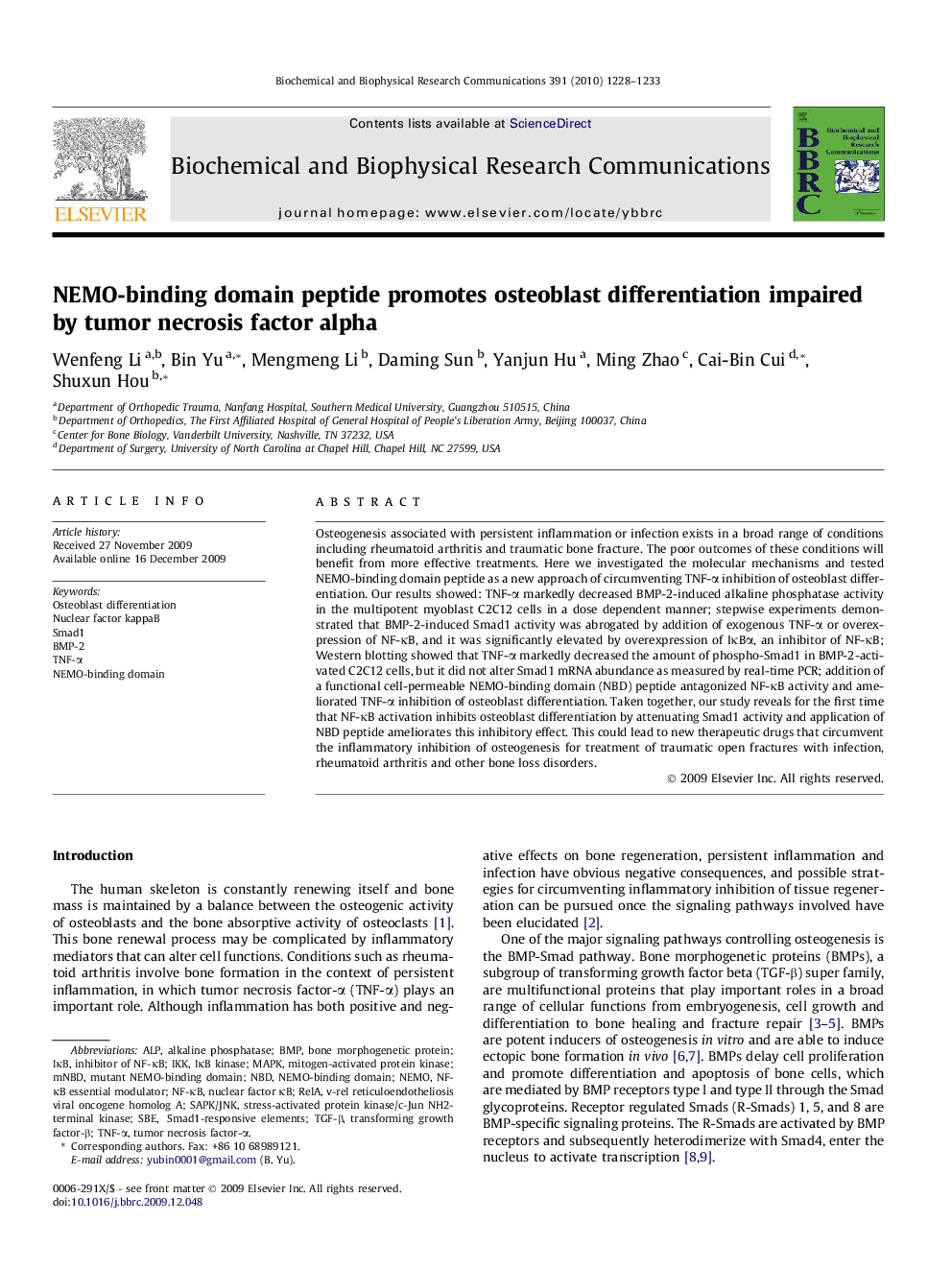| Article ID | Journal | Published Year | Pages | File Type |
|---|---|---|---|---|
| 1932452 | Biochemical and Biophysical Research Communications | 2010 | 6 Pages |
Osteogenesis associated with persistent inflammation or infection exists in a broad range of conditions including rheumatoid arthritis and traumatic bone fracture. The poor outcomes of these conditions will benefit from more effective treatments. Here we investigated the molecular mechanisms and tested NEMO-binding domain peptide as a new approach of circumventing TNF-α inhibition of osteoblast differentiation. Our results showed: TNF-α markedly decreased BMP-2-induced alkaline phosphatase activity in the multipotent myoblast C2C12 cells in a dose dependent manner; stepwise experiments demonstrated that BMP-2-induced Smad1 activity was abrogated by addition of exogenous TNF-α or overexpression of NF-κB, and it was significantly elevated by overexpression of IκBα, an inhibitor of NF-κB; Western blotting showed that TNF-α markedly decreased the amount of phospho-Smad1 in BMP-2-activated C2C12 cells, but it did not alter Smad1 mRNA abundance as measured by real-time PCR; addition of a functional cell-permeable NEMO-binding domain (NBD) peptide antagonized NF-κB activity and ameliorated TNF-α inhibition of osteoblast differentiation. Taken together, our study reveals for the first time that NF-κB activation inhibits osteoblast differentiation by attenuating Smad1 activity and application of NBD peptide ameliorates this inhibitory effect. This could lead to new therapeutic drugs that circumvent the inflammatory inhibition of osteogenesis for treatment of traumatic open fractures with infection, rheumatoid arthritis and other bone loss disorders.
